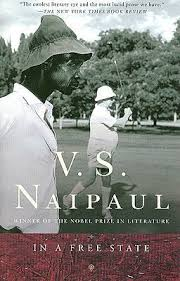In a Free State is a novel by V.S. Naipaul, first published in 1971. This work is a complex exploration of identity, post-colonialism, and the effects of political upheaval in former British colonies. The novel is structured as a series of interconnected stories, each examining the experiences of individuals living in the aftermath of colonial rule in various parts of the world.
The central narrative of In a Free State is a tale of two characters, an unnamed Englishman and his companion, who are traveling through a fictional African country. The Englishman is caught between the legacies of British colonialism and the struggles of the newly independent nation, and the novel portrays the complexities of navigating post-colonial realities.
Naipaul's narrative is rich in themes of alienation, disillusionment, and the difficulties of adapting to a "free" state after colonialism. The novel critiques the idea of freedom in post-colonial societies, portraying it as both a burden and a promise that is often unfulfilled. It also examines the psychological effects of colonial rule on both the colonized and the colonizer, with characters often confronting their own sense of displacement, uncertainty, and confusion.
The novel is known for its sharp, observant prose, and Naipaul’s exploration of the personal and political tensions in post-colonial life has been praised for its intellectual rigor and its nuanced portrayal of the complex realities of freedom and independence.
In a Free State won the Booker Prize in 1971, and it helped establish V.S. Naipaul as one of the most important writers in post-colonial literature. It remains a significant work for those interested in the themes of cultural identity, political transition, and the lingering effects of colonialism.












